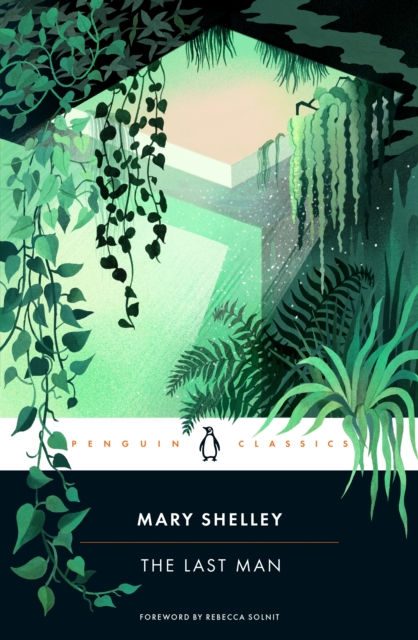Mary Shelley's landmark novel that invented the human extinction genre and initiated climate fiction, imagining a world where newly-forged communities and reverence for nature rises from the ashes of a pandemic-ravaged society, now for the first time in Penguin Classics, with a foreword by Rebecca Solnit A Penguin Classic
Written while Mary Shelley was in a self-imposed lockdown after the loss of her husband and children, and in the wake of intersecting crises including the climate-changing Mount Tambora eruption and a raging cholera outbreak,
The Last Man (1826) is the first end-of-mankind novel, an early work of climate fiction, and a prophetic depiction of environmental change. Set in the late twenty-first century, the book tells of a deadly pandemic that leaves a lone survivor, and follows his journey through a post-apocalyptic world that's devoid of humanity and reclaimed by nature. But rather than give in to despair, Shelley uses the now-ubiquitous end-times plot to imagine a new world where freshly-formed communities and alternative ways of being stand in for self-important politicians serving corrupt institutions, and where nature reigns mightily over humanity--a timely message for our current era of climate collapse and political upheaval. Brimming with political intrigue and love triangles around characters based on Percy Shelley and scandal-dogged poet Lord Byron, the novel also broaches partisan dysfunction, imperial warfare, refugee crises, and economic collapse--and brings the legacy of her radically progressive parents, William Godwin and Mary Wollstonecraft, to bear on present-day questions about making a better world less centered around "man." Shelley's second major novel after
Frankenstein,
The Last Man casts a half-skeptical eye on romantic ideals of utopian perfection and natural plenitude while looking ahead to a greener future in which our species develops new relationships with non-human life and the planet.




